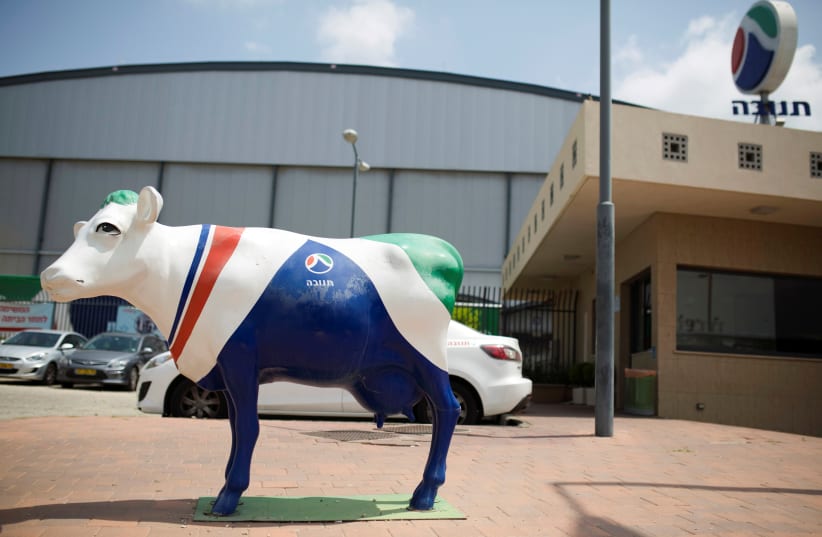Global excitement may already be building ahead of late November’s Black Friday shopping frenzy, but it seems that little will compare to the hysteria caused by the rare sighting of domestically produced butter in Israeli supermarkets.
Almost no butter has been seen on supermarket shelves since the turn of the year, leading to despair among bakers and fans alike of the classic bread and butter. Earlier this week, one popular Hebrew-language website even published a recipe for making butter at home.
For Israel’s dominant producers, including Tnuva and Strauss, the government-set price for basic dairy items including butter has made continued production unprofitable. High tariffs and quotas on products from abroad has meant that importing butter, dubbed by some as the “new white gold” by those same manufacturers for sale in the domestic market, has not proven economically feasible.
Imported brands from Europe currently cost as much as NIS 8.45 ($2.40) for 100 grams, compared to the government’s fixed price of NIS 3.94 ($1.12).
If consumers were hopeful that a solution might be reached in the near future, enabling domestic producers to restart the butter churns, a blame game between government ministries may leave them disappointed throughout the winter months.
Earlier this week, the Finance Ministry called on the Agriculture Ministry to open up the butter market and entirely remove import quotas and tariffs, which currently range between 126%-140% for domestic butter products and between 144%-160% for industrial butter.
“In our view, the imposition of butter quotas creates market distortions, and their cancellation, in parallel with the abolition of custom taxes, will open the market to butter imports, diversify their origin and prevent future shortages of this basic consumer product, which the market cannot provide from its own sources,” Danny Tal, director of the Import Administration at the Economy Ministry, wrote in a letter to the Agriculture Ministry.
Rejecting the recommendation, the Agriculture Ministry pointed the finger back at the Economy Ministry, blaming it for the current shortage. In a letter obtained by Hebrew-language financial newspapers, the Agriculture Ministry blamed the Economy Ministry for the manner in which quotas are managed.
“The problem is the distribution of quotas, with an emphasis on the conditions dictated by your office and the type of winning importers,” wrote Gilad Eliraz, director of the Agriculture Ministry’s International Division.
“If quotas were distributed in accordance with the recommendations of the Ministry of Agriculture, the butter would arrive in Israel, supply and demand would meet, and perhaps only a negligible shortage would be created.”
Speaking on Army Radio on Thursday morning, Tnuva CEO Eyal Malis called on both ministries to take immediate action and solve the shortage for Israel’s consumers.
“The ministries of economy and agriculture must issue a permit this week to import approximately 5,000 tons of butter that are likely to be unavailable next year, and to divide the imports logically among the various importers so that they can fulfill quotas and import in large quantities,” Malis said.
“Some importers have not exhausted their import quotas because the prices of kosher butter have increased abroad and it was not financially feasible for them. Tnuva is ready to import butter and not profit from it, only to ensure that there will be no shortage on the shelves.”
